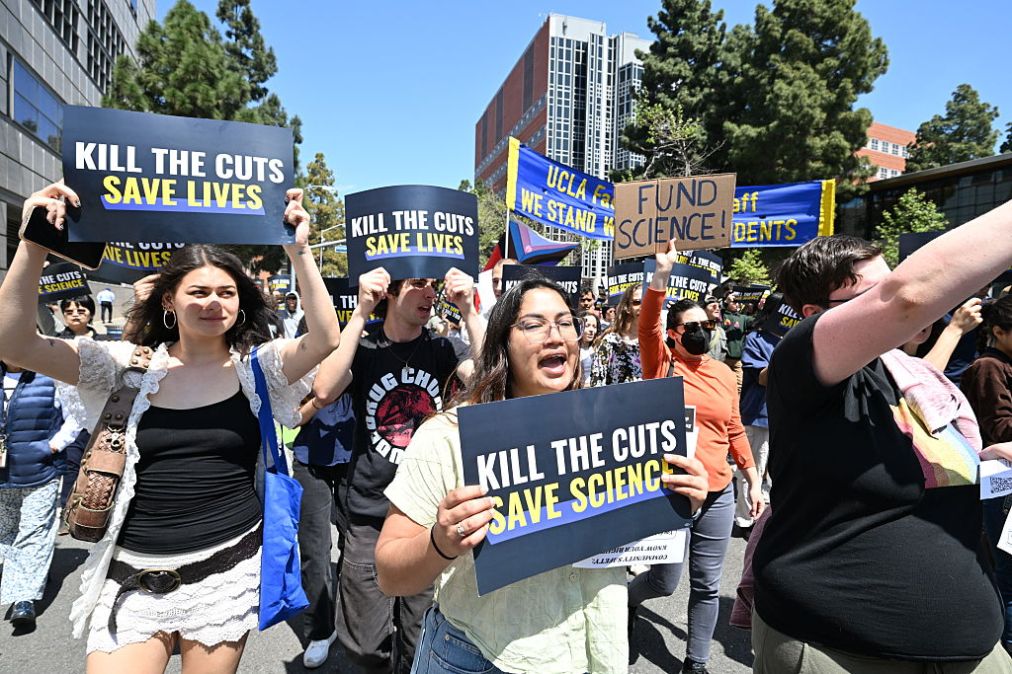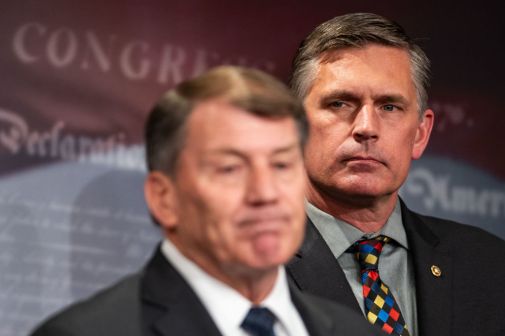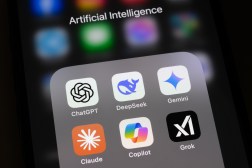If you are reading this online, you can thank universities

The birth of the internet — an event that would reshape nearly every aspect of human life — began not with fanfare, but with a crash.
In October 1969, a group of UCLA students and researchers sat down at a keyboard to send the first-ever message to another networked computer, located at the Stanford Research Institute. They started to type out “LOGIN,” but only got to “LO” before the system failed. Still, the computer hundreds of miles away received those two letters, and the digital world as we know it was born.
That moment was only possible thanks to years of collaboration and consistent federal funding. It is one example of how the partnership between government and higher education has served as an indispensable engine of American prosperity. There are many others: the polio vaccine that saved countless children from a lifetime of disability and pain, the breakthrough that made FM radio possible, the theoretical groundwork that created artificial intelligence and more.
Universities are the only institutions able to pursue the bold, ambitious research that leads to national progress — and that pursuit of knowledge provides the foundation for our most transformative developments. These advancements affect the lives of virtually every American and expand our entire economy. Without universities, you would not have access to the smartphone or the browser that you are using to read this article. Tens of millions of Americans would not be employed in today’s $4.9 trillion digital economy. Millions who have received medical treatments that originated in university labs might not be alive at all.
This legacy of innovation began in 1941, when President Franklin Roosevelt created the Office of Research and Development to support our efforts in World War II. Rather than walling off scientific exploration in government buildings — still the predominant method in Europe — the U.S. began funding research through universities. After this successful partnership helped us win the war, the National Science Foundation and the National Institutes of Health were created to cement the university model. In the decades since, this compact has ensured the best scientific minds can push the boundaries of our knowledge and our nation has a powerful pipeline of future scientists.
Today, however, the model that has powered this miraculous progress is under threat. Over the past several months, the administration has proposed cutting over 4,000 grants valued between $6.9 billion and $8.2 billion, affecting institutions of higher education across all 50 states. At UCLA, where I serve as chancellor, $584 million in research funding may be at risk.
In medical research, lost funding equals lost lives. At UCLA, Dr. David Shackelford leads a lab that runs clinical trials for lung cancer — a disease that kills more than 100,000 people in the United States every year. When almost 800 critical UCLA grants were suspended, he and his colleagues lost funding and had to put their work on hold. A judge has restored almost all of these, but another ruling might reverse course again. Beyond the current set of grants, it is essential to continue funding projects like these in the future.
Federal cuts that prevent discoveries at universities, or halt their progress, stunt growth across the United States. Economists estimate that government investment in non-defense research and development, much of which takes place at universities, generates returns of up to 210%. That means that for every research dollar the government slashes, the country loses more than two dollars in eventual economic activity — in the form of businesses started, jobs created, and industries formed.
These losses will not — and indeed, cannot — be replaced by research from the private sector. Universities are driven by a commitment to the public good and operate with much longer horizons. That enables us to take on vexing challenges or pursue solutions that may seem hard to imagine in the moment but lead to unforeseen breakthroughs. While we can pursue knowledge that may or may not ever become a marketable product, companies must consider shareholders and bottom lines. We simply operate with a different set of imperatives.
Still, our work is deeply tied to our nation’s economy. U.S. research breakthroughs become U.S. prosperity, and without the federal funding that has spurred innovation for almost a century, our global competitiveness and security is put at risk. Right now, the best minds from all over the world come to the United States to invent and discover. Terence Tao, a UCLA mathematician known as “the Mozart of math,” moved from Australia to Los Angeles because he grew up understanding that there was no better place to pursue his work. If the United States is no longer the destination of choice, our adversaries will fill the gap.
Imagine a world where that seminal “LO” message was not sent from Westwood but a place where freedom of speech is not foundational. Would today’s internet be defined by openness and accessibility, or by censorship? If future world-changing innovations are discovered in authoritarian states, whose values will our modern-day tools reflect?
As we reflect on the invention of the internet, we should be celebrating the innovations that have improved our lives and doubling down on the funding that made them possible. Instead, if federal cuts continue, we will be grieving lost progress and marking the decline of a scientific superpower — all because groundbreaking research got caught up in politics.
Julio Frenk is chancellor of the University of California, Los Angeles and a distinguished professor at the UCLA Fielding School of Public Health. A global public health researcher, he previously served as president of the University of Miami, dean of Harvard T.H. Chan School of Public Health, and Mexico’s federal secretary of health.






